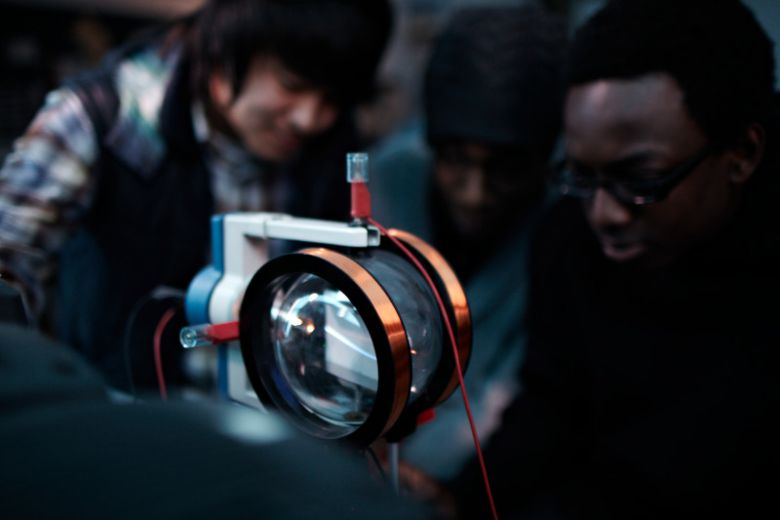
Overview
A-Level Physics
Physicists explore the fundamental nature of almost everything we know of. They probe the furthest reaches of the earth to study the smallest pieces of matter. Join them to enter a world deep beneath the surface of normal human experience.
Possible Degree Options
According to bestcourse4me.com, the top seven degree courses taken by students who have an A-Level in Physics are:
- Mathematics
- Physics
- Mechanical Engineering
- Computer Science
- Civil Engineering
- Economics
- Business
Course Content
Topics Covered
Foundations of Physics
- Physical quantities and units, Making measurements and analysing data, Nature of quantities
Forces and motion
- Motion, Forces in action, Work, energy and power, Materials, Newton’s laws of motion and momentum
Electrons, waves and photons
- 1 Measurements and their errors
- 2 Particles and radiation
- 3 Waves
- 4 Mechanics and materials
- 5 Electricity
- 6 Further mechanics and thermal physics
- 7 Fields and their consequences
- 8 Nuclear physics
Options
- 9 Astrophysics
- 10 Medical physics
- 11 Engineering physics
- 12 Turning points in physics
- 13 Electronics
Practicals
Physics, like all sciences, is a practical subject. Throughout the course you will carry out practical activities including:
- Investigating interference and diffraction of laser light
- Measuring acceleration due to gravity
- Investigating systems that oscillate
- Investigation of the links between temperature, volume and pressure
- Safe use of ionising radiation
- Investigating magnetic fields
These practicals will give you the skills and confidence needed to investigate the way things behave and work. It will also ensure that if you choose to study a Physics-based subject at university, you’ll have the practical skills needed
to carry out successful experiments in your degree. This is now a requirement and forms part of the Practical Endorsement that is a requirement of A-Level Physics.
Exams
- Paper 1 Breadth in Physics, 1 hr 30 mins, 70 marks, 50% of AS, Multiple choice / short answer
- Paper 2 Depth in Chemistry, 1 hr 30 mins, 70 marks 50% of AS, Structured questions and extended response questions
Requirements
5 GCSEs grade 9-5, including Maths and a grade 6 in GCSE Physics/double science.
Careers
Studying A-Level Physics offers an infinite number of amazing career opportunities including:
- Geophysicist/field seismologist
- Healthcare scientist, medical physics
- Higher education lecturer
- Radiation protection practitioner
- Research scientist (physical sciences)
- Scientific laboratory technician
- Secondary school teacher
- Meteorologist
- Structural engineer
- Acoustic engineer
- Product/process development scientist
- Systems developer
- Technical author
You can also move into engineering, astrophysics, chemical physics, nanotechnology, renewable energy and more, the opportunities are endless.
